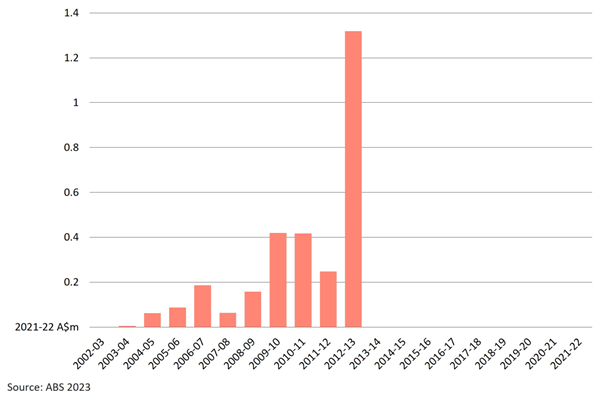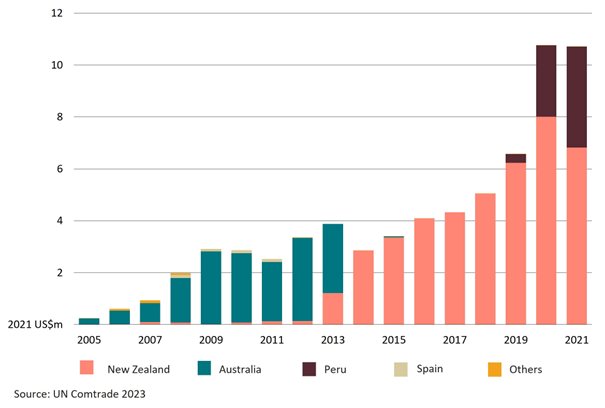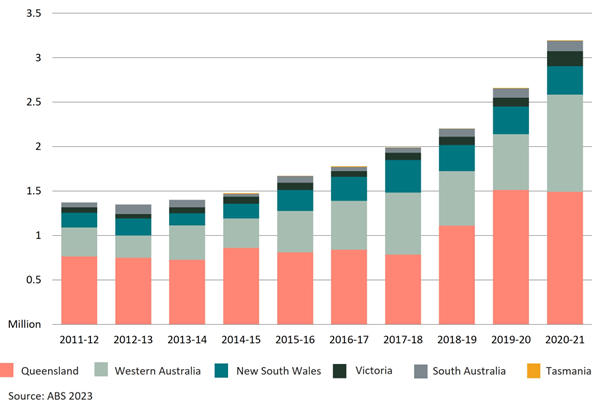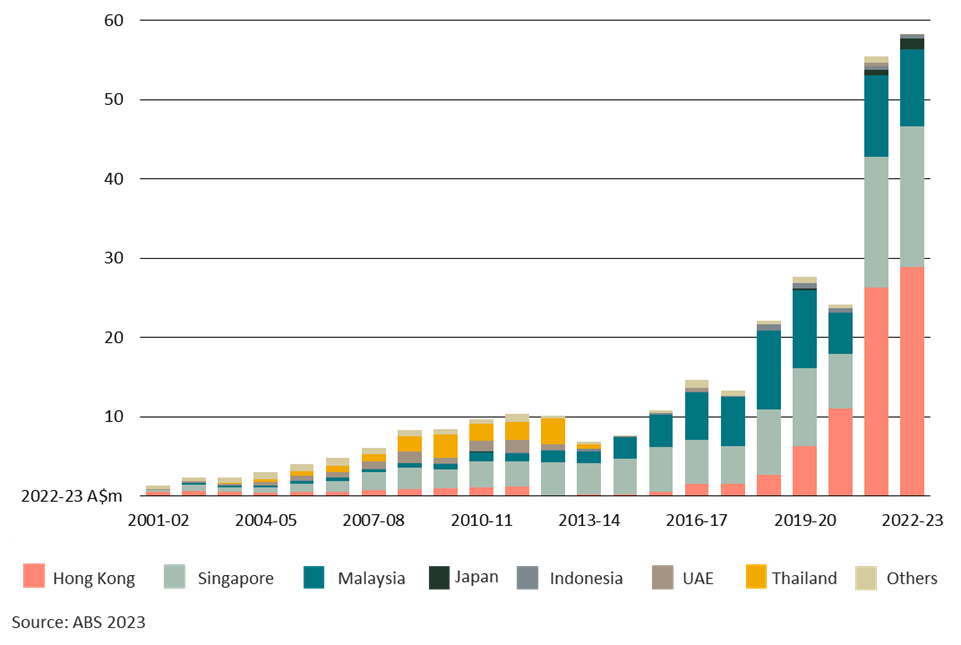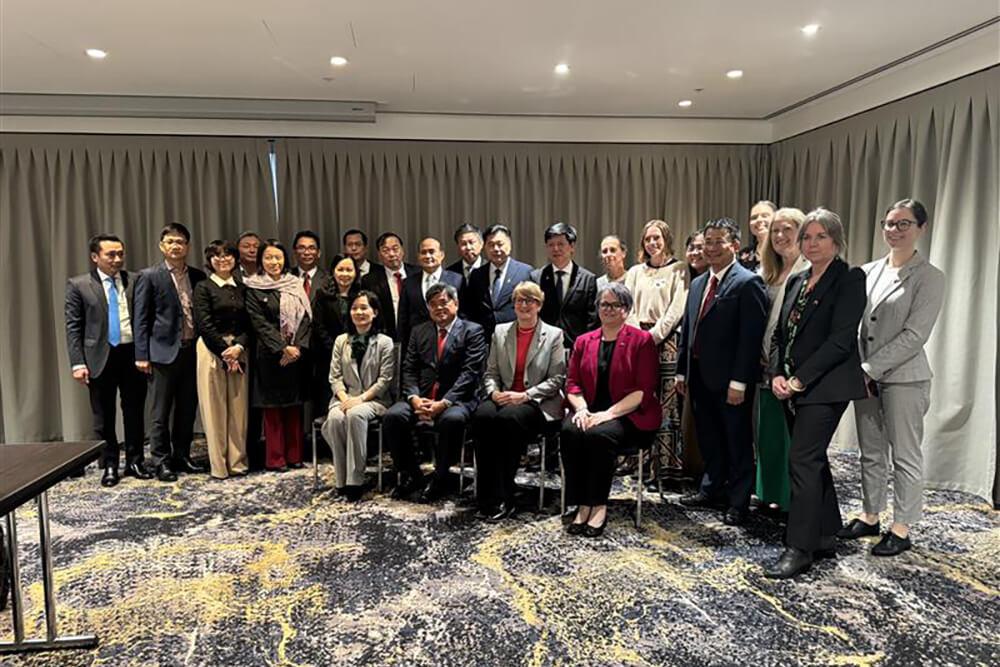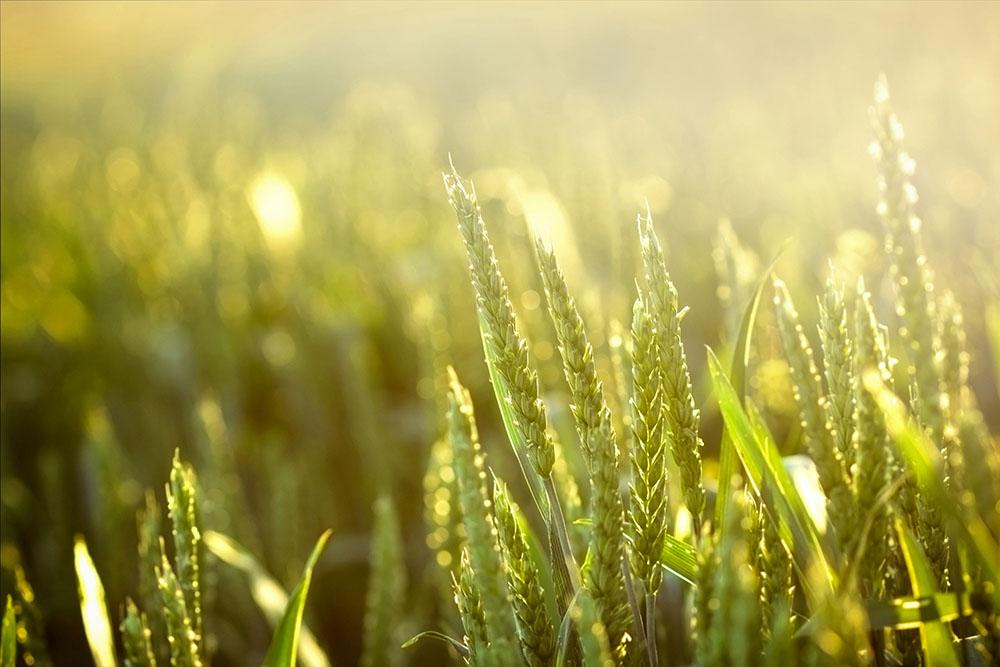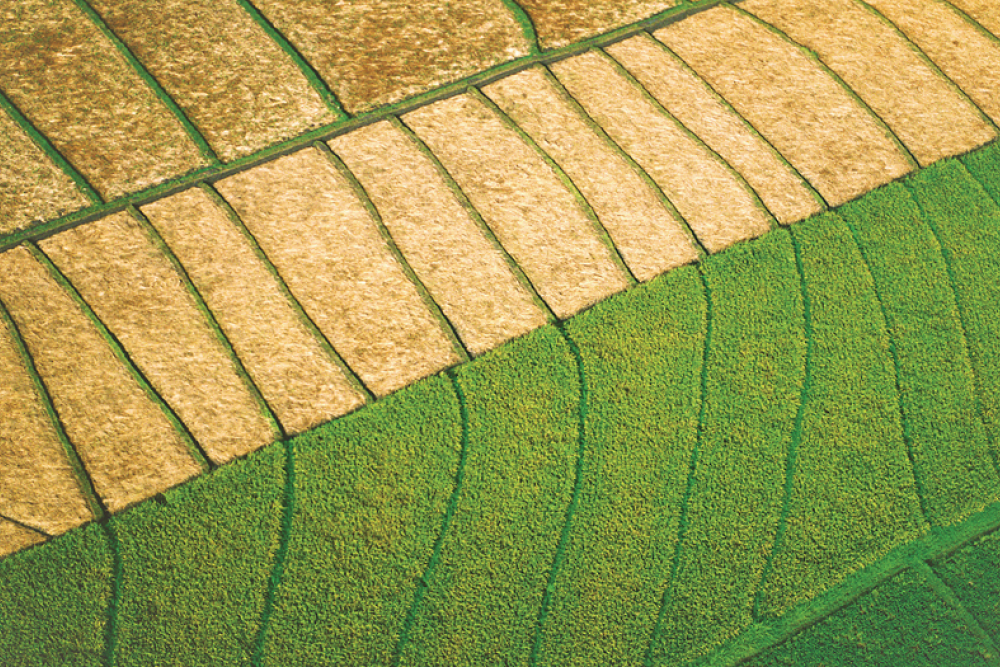Western Australian avocado exporters have regained market access to Thailand. On 11 May 2023, the Director General of the Thai Department of Agriculture approved import conditions for Western Australian Hass avocados.
Western Australian avocado orchards and packhouses have been successfully audited and accredited by Thai authorities, and exports have recommenced after a 10 year hiatus.
Australia was the largest exporter of avocados to Thailand prior to 2013, when Thailand introduced cold treatment protocols for avocados due to fruit fly concerns. Cold treatment is damaging to avocados and as a result Australia’s avocado exports to Thailand dropped by 82% from A$2.6 million in 2012–2013 to A$472,000 in 2013–2014. The states that were impacted most were Western Australia (-100%), New South Wales (-80%), and Queensland (-79%).
Australia’s avocado exports from fruit fly free zones of South Australia (Riverland region) and the Sunraysia district of Victoria and New South Wales were exempted from the cold-treatment requirement. However, due to higher processing costs and more favourable access to other lucrative markets in the region, Australia’s exports to Thailand ceased from 2014-15. Australia’s avocado exports were diverted mainly to Hong Kong, Singapore, and Malaysia.
Implications for Australian avocado exporters
Industry estimates the Thailand avocado market is worth around A$10 million for Western Australian growers. There is also an opportunity for the market to expand to Australia’s east coast producers in the future.
In recent years, due to increased tree plantings, Australian avocado production has outweighed domestic demand. The addition of the Thailand avocado market will support export growth and relieve pressure on the Western Australian domestic market.
Further export market expansion will assist the domestic industry to maintain long-term supply and price stability. Australian Hass avocados also gained access to India in 2023.
Export requirements are published in the Manual of Importing Country Requirements (Micor). Interested exporters can contact Avocados Australia and continue to monitor for further Australian Government notifications.
Western Australian avocado exports to Thailand
For almost a decade, Western Australia has not exported avocados to Thailand (Figure 1). At the peak of Australia’s avocado exports to Thailand in 2012–13, Thailand accounted for 44% of Western Australian total avocado exports by value.
Figure 1 – Value of Western Australian avocado exports to Thailand
Thailand avocado market
Thailand does not produce avocados on a commercial scale and relies mostly on imports. Between 2019 and 2021, Thailand imported an average of US$9.4 million worth of avocados per year, with 75% from New Zealand and 25% from Peru (UN Comtrade 2023). Thailand avocado imports have risen continuously for many years with a sharp increase in 2020 and 2021 (Figure 2).
Figure 2 – Value of Thailand’s avocado imports from the world
Australia was the main exporter of avocados to Thailand between 2005 and 2013 (Figure 2). Thai imports of avocados shifted from Australia to New Zealand after the introduction of cold treatment protocols in 2013.
The average unit import price of New Zealand and Peru avocados in Thailand between 2019 and 2021 were A$8.23/kg and A$6.65/kg respectively. These unit prices were higher than Australian avocados in Hong Kong (A$5.74kg), Singapore (A$5.34/kg), and Malaysia (A$5.66/kg). Although Peru’s cost of production might be lower compared with Australia, Australia has proximity advantage to the Thailand market.
Australian avocado industry
Australia is a minor producer and exporter of avocados globally. Avocados are produced throughout the year in Australia. The main avocado variety produced in Australia is Hass which accounted for 83% of total production in 2021–22.
In 2021-2022, Australia’s avocado production was valued at A$363.8 million. Most Australian avocados were produced in Queensland (56%), Western Australia (29%), and New South Wales (10%) between 2018–19 and 2020–21 (ABS 2023).
Due to strong consumer demand, Australian avocado tree numbers have increased continuously in the past decade (Figure 3). Between 2011–12 and 2021–22, Australian avocado trees increased from 1.4 million to 3.2 million (+133%) (ABS 2023). Western Australia has the largest increase in tree numbers (+237%) followed by Victoria (+185%), South Australia (109%), Queensland (+95%), and New South Wales (+92%).
Figure 3 – Australian total avocado tree numbers by states
Australian exports of avocados have increased in the past few years (Figure 4). This is due to the significant increase in avocado production and a fall in domestic avocado prices.
Hong Kong, Singapore, and Malaysia are Australia’s major avocado markets (Figure 4). Between 2020–21 and 2022–23, Hong Kong accounted for 48% of Australian avocado exports by value followed by Singapore (30%) and Malaysia (18%).
In 2022–23, Western Australia exported avocados to 13 markets valued at A$7.1 million. Malaysia was the main market (37%), followed by Singapore (25%), Japan (19%), and Hong Kong (16%). These markets are willing to pay a premium for quality fruit and vegetables due to high incomes.
Although the supply of Australian avocados is higher than local demand, avocados are imported into Australia. New Zealand is the main exporter of avocados to Australia during low producing months.
Further Information
More information about the Australian avocado industry is available here.
Austrade provides information on Doing business in Thailand | Explore markets.
The Australian Government’s network of Agriculture Counsellors provided information for this article. More information about the Agriculture Counsellor network, including contact details, are available on the Department of Agriculture, Fisheries and Forestry website.
Go further, faster with Austrade
Go to Austrade’s Go Global Toolkit to learn the export basics, find the right markets and understand market requirements.

